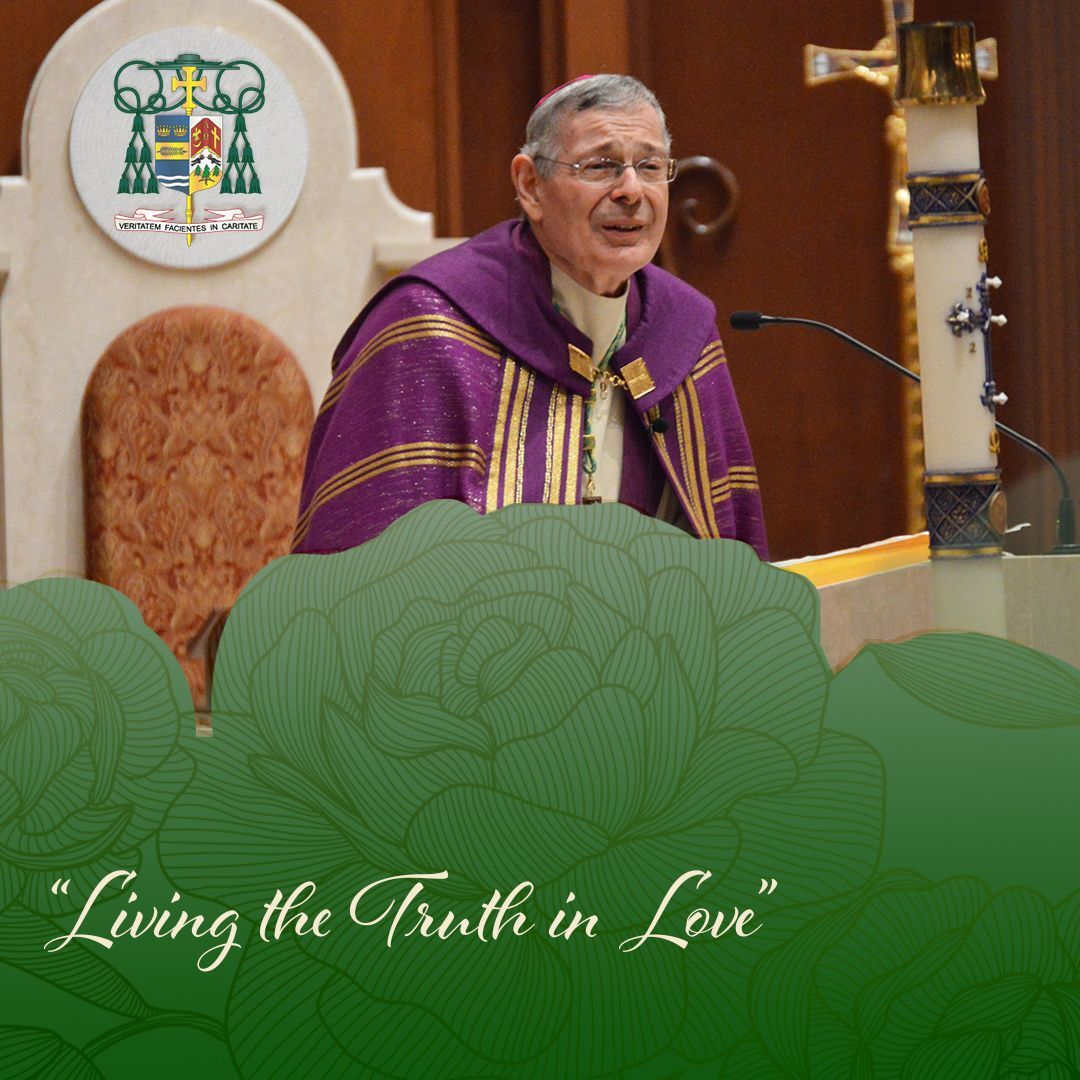
I Came so that They Might have Life
Sunday, Oct. 6, is Respect Life Sunday, as it is at the beginning of the month dedicated to respect for life as called for by the United States Conference of Catholic Bishops. The theme for this year’s program is from the words of Jesus in the Gospel of St. John: “I came so they might have life.” As we read from the Book of Genesis on this weekend, God created the human person to share in His life and for life to be a reflection of His love. The human person is meant to live in communion with God and with one other in a family of love. Marriage is the union between a man and woman which reflects the life of God, and in so doing brings life into the world.
Unfortunately, we live at a time when God’s plan of creation is not greatly understood and often rejected. A false and dangerous understanding of freedom is seen as a fundamental right of replacing God’s plan and vision in creation. This is nothing really new as what prompted Adam and Eve, the first man and woman, to reject God’s plan, which brought sin and division into the world. In the face of this personal rejection, God did not destroy but redeemed. As we were made in His image and likeness, He took on our image and likeness in the humanity of Christ, revealing all the more the dignity and value of every human person, even the sinner.
Respect Life Sunday and Respect of Life Month are a call for us, as men and women of faith, to continue our efforts to do all we can to promote respect for the gift of life from the moment of conception in the mother’s womb until the moment of natural death. That respect is for all of life and must be seen as a unity in terms of God’s plan. However, the lack of respect for the life of an unborn child, through abortion, will only lead to the lack of respect for life at every stage, including the life of the poor, the forgotten, the elderly, the infirm, the imprisoned, the disabled, and the list goes on and on. Law cannot, under any circumstance, determine that the life of an unborn child can be taken.
Pope Francis has spoken strongly and consistently in this regard. Last week on his return flight from his apostolic visit to Belgium, he expressed to the usual press conference on the plane that abortion is “homicide,” saying, “you are truly taking the life of a human being,” and calling the doctors who perform abortions as “hitmen.” It is always amazing to hear some of the media saying that Pope Francis is less rigid in this regard. He has been consistent and bold in his opposition to the horror of abortion.
While we are all very grateful for the reversal of the Supreme Court in regard to the nullifying of the decision of Roe v. Wade, which permitted abortion as a federal mandate, it is discouraging to see the political manipulation which has taken place in regard to state laws. Abortion is not a decision for the state to determine any more than it is for the federal government. The right to life is an absolute freedom based on God’s law, which is unchangeable. In the Gospel for this Sunday from St. Mark, we see the absolute authority of Christ in regard to God’s law when He condemns Moses for allowing divorce in order to assuage the hardness of the human heart. He would have no difficulty in condemning state and federal laws permitting abortion as He did Moses for undermining the law of the indissolubility of marriage.
In this regard, there is a very important vote before us in the national election this year, which has to do with abortion and the state of Florida constitution. Amendment 4 would permit abortion within our state in the most radical and destructive form. The decision of any voter, Catholic, or otherwise, is an easy one — Vote No on Amendment 4. The amendment is devastating to life, permitting abortion even when the child can feel pain, dropping the requirement of parental permission, and not even needing the direction of a doctor, but of an undefined healthcare worker. These are just some of its limitations. The amendment is flawed, both in ethics and legality, driven by political consideration and not for respect of life at any stage.
As we commit ourselves this month and Sunday to protecting the sanctity of life and engaging with our elected officials to assist us in this regard, let us above all continue to rely on the power of prayer. Prayers made a significant difference in this matter and will continue to do so. May we join together, as a family of faith, to understand better the words of the Lord which are absolute: “I came so they might have life.”
Most Reverend Gerlad M. Barbarito

